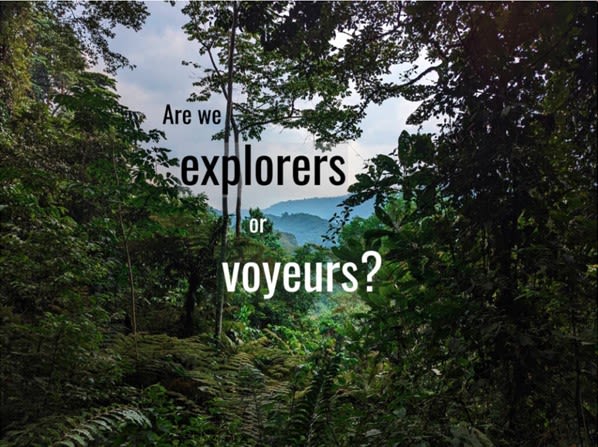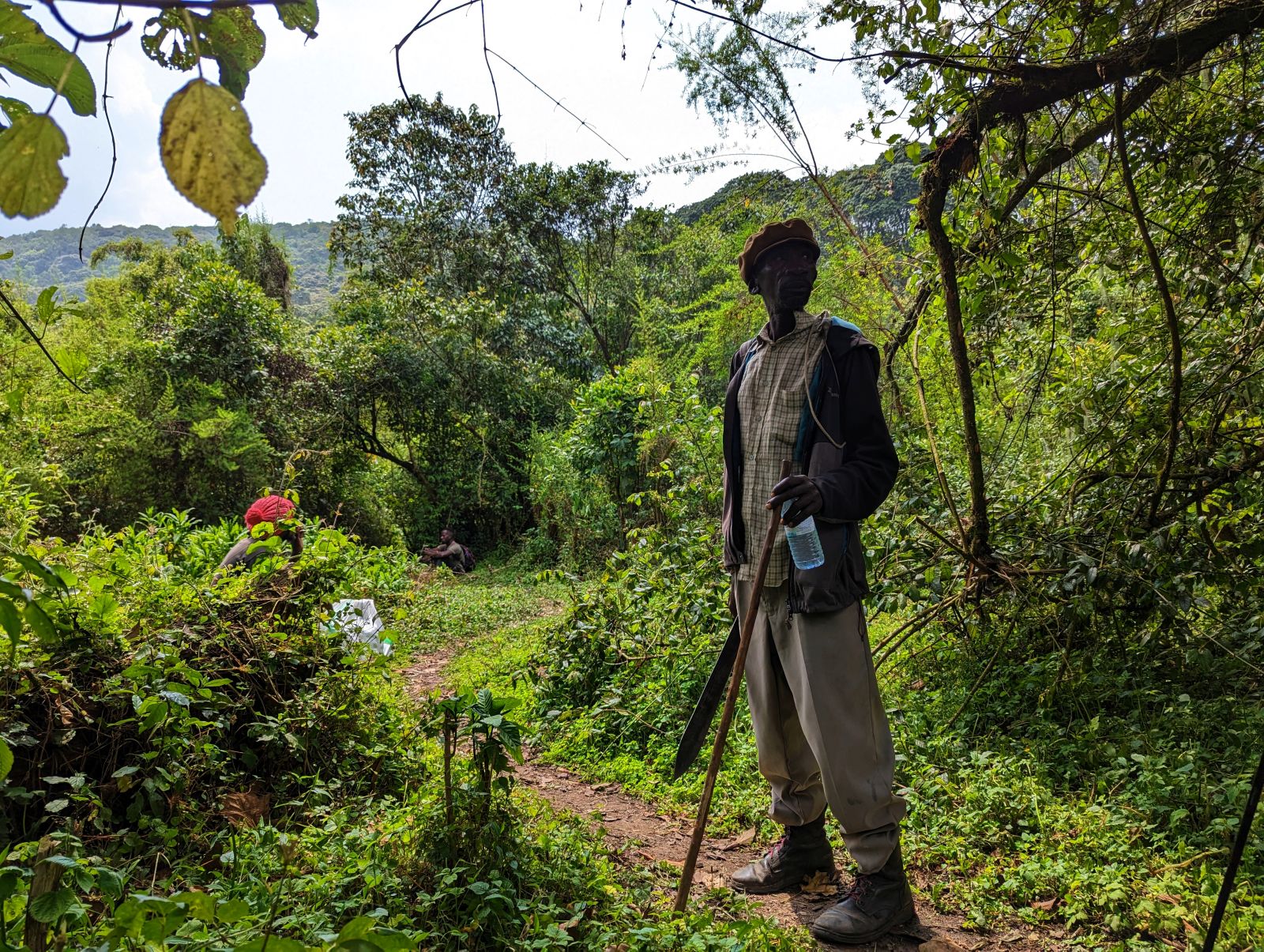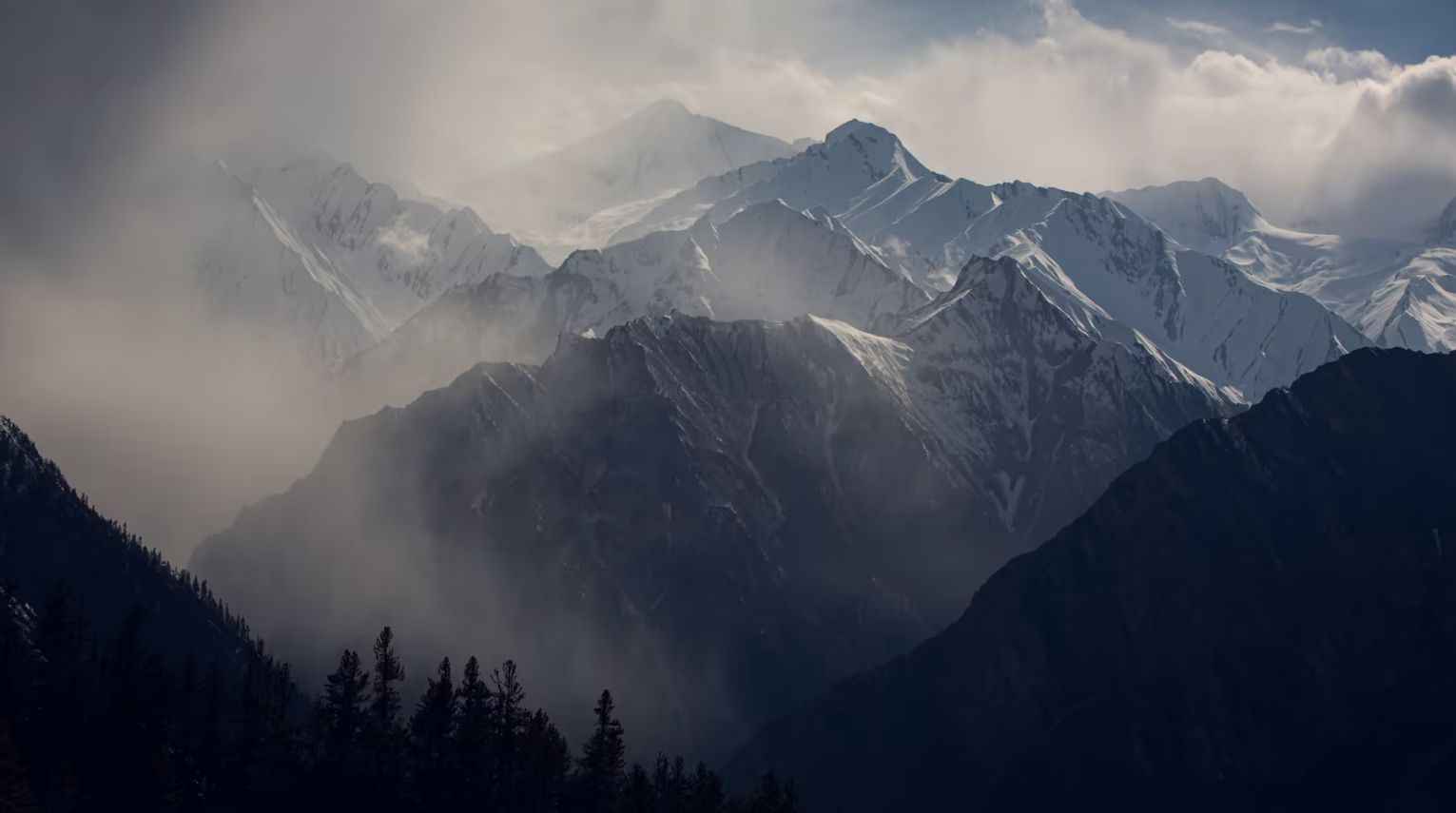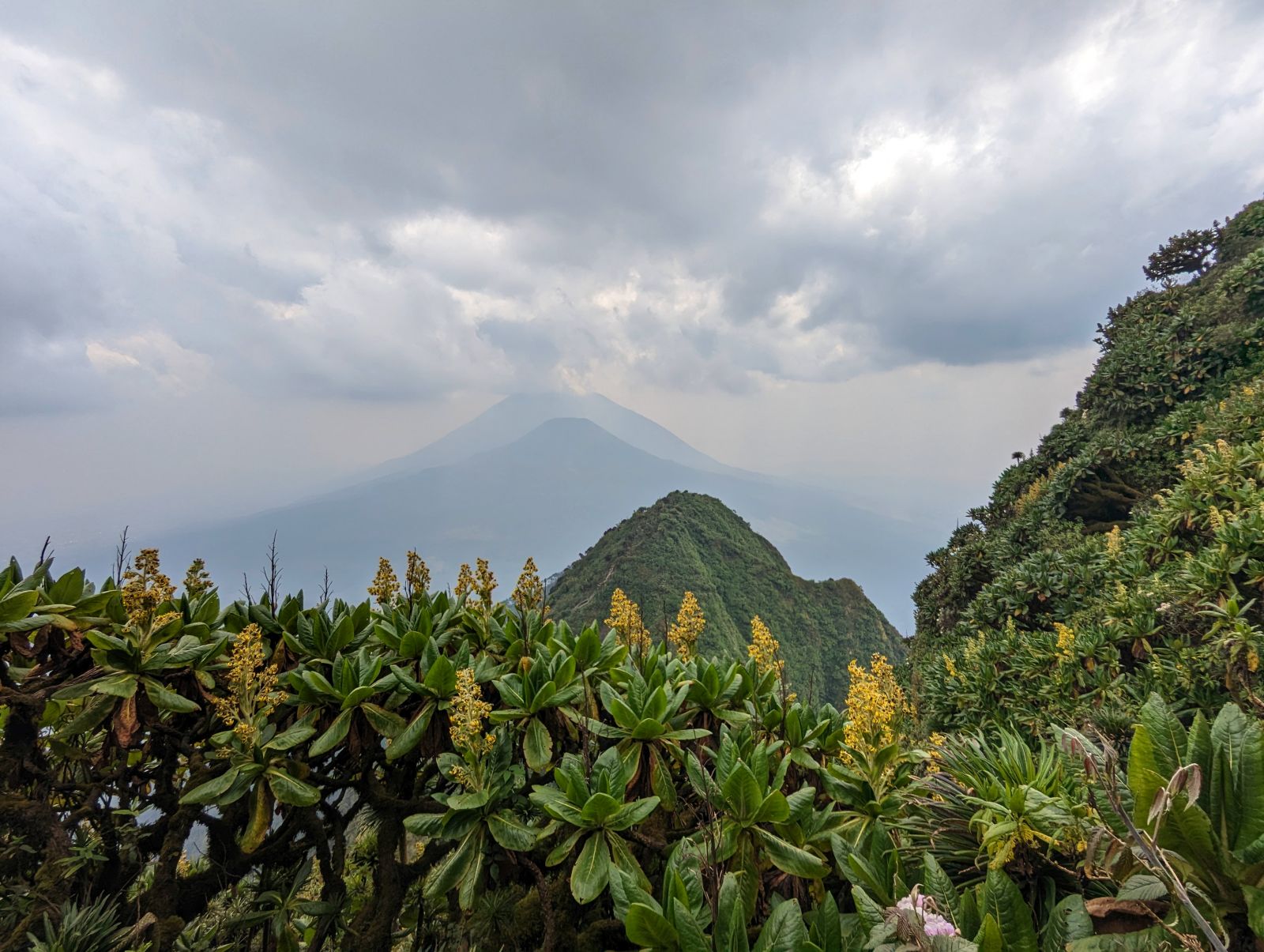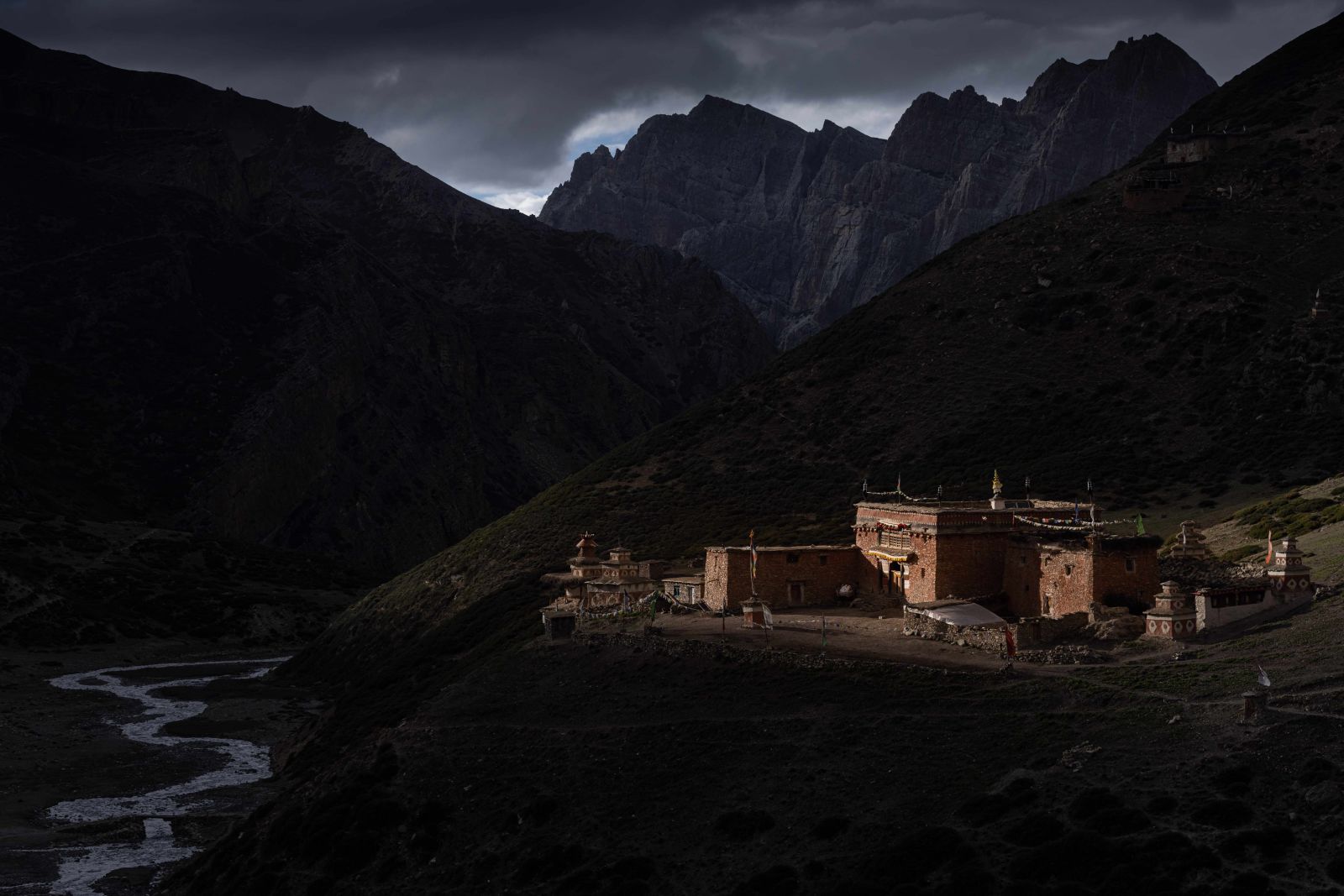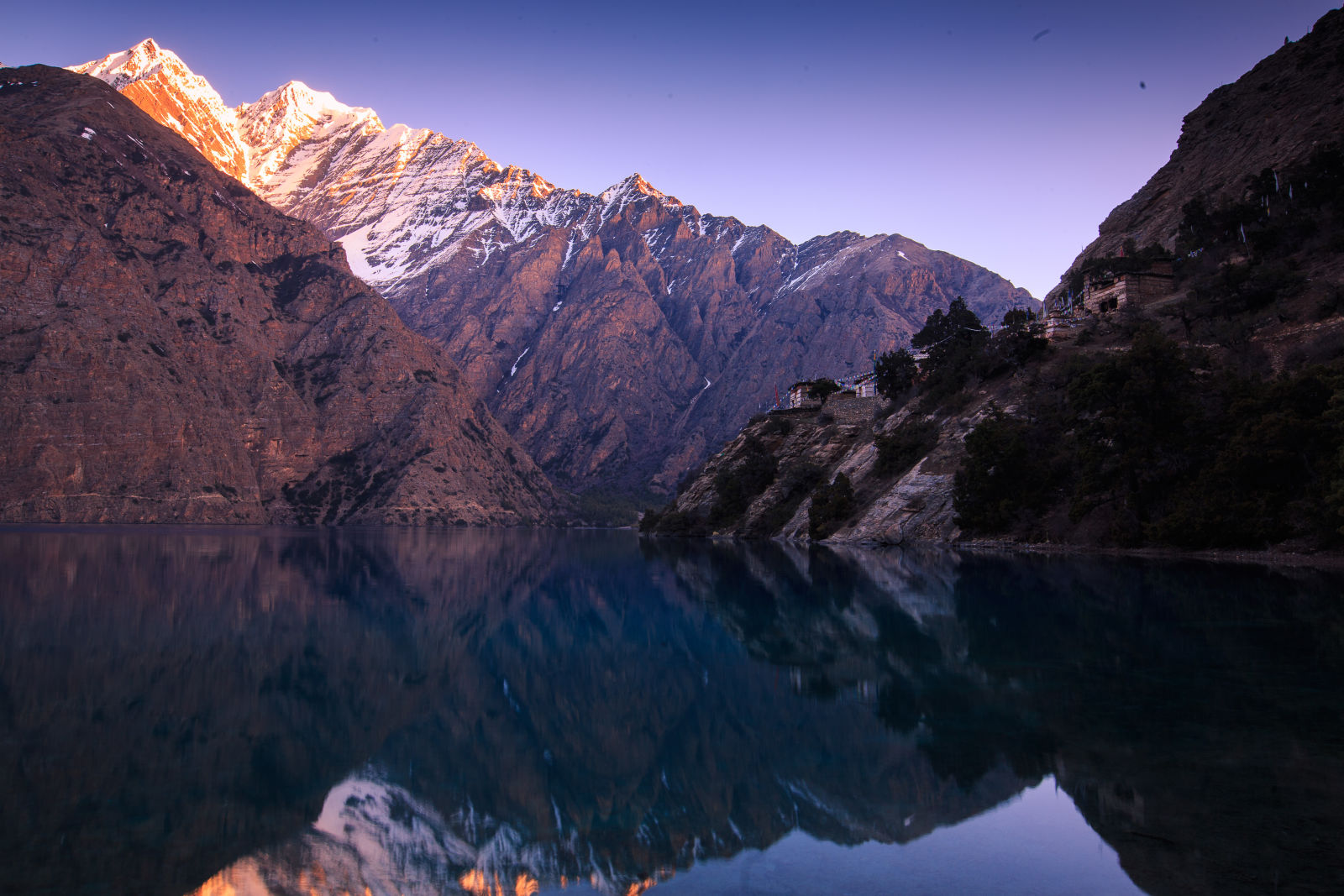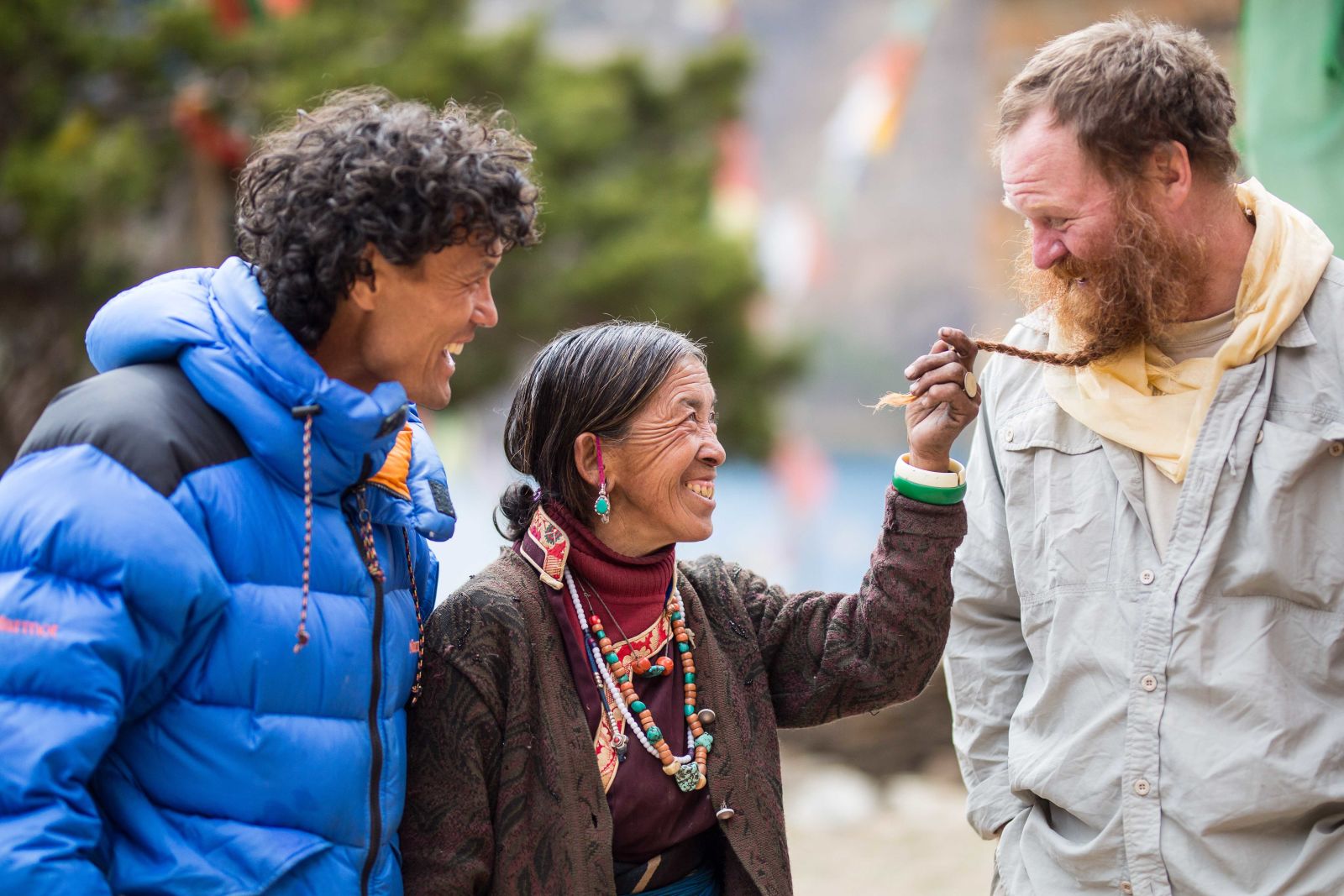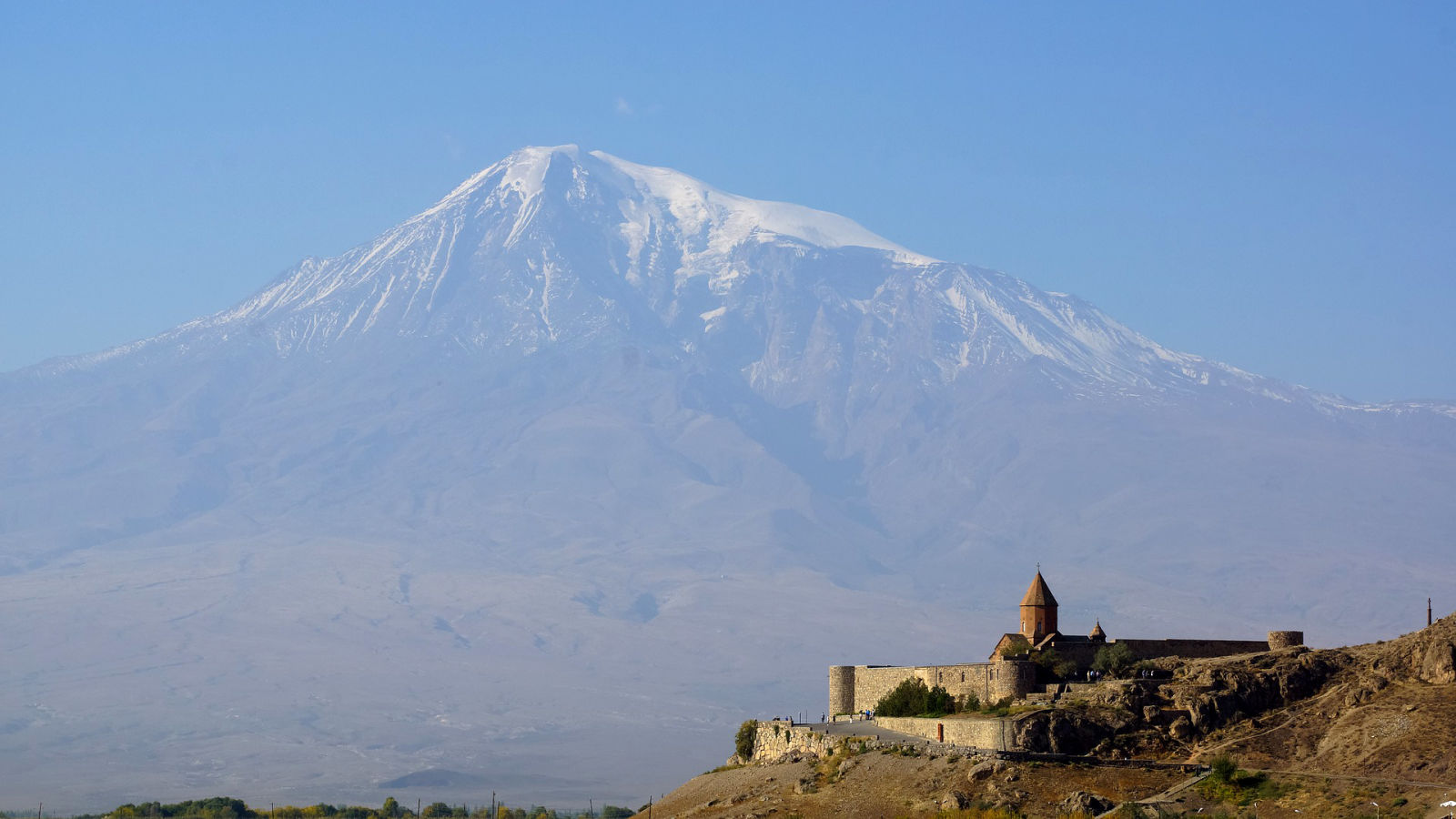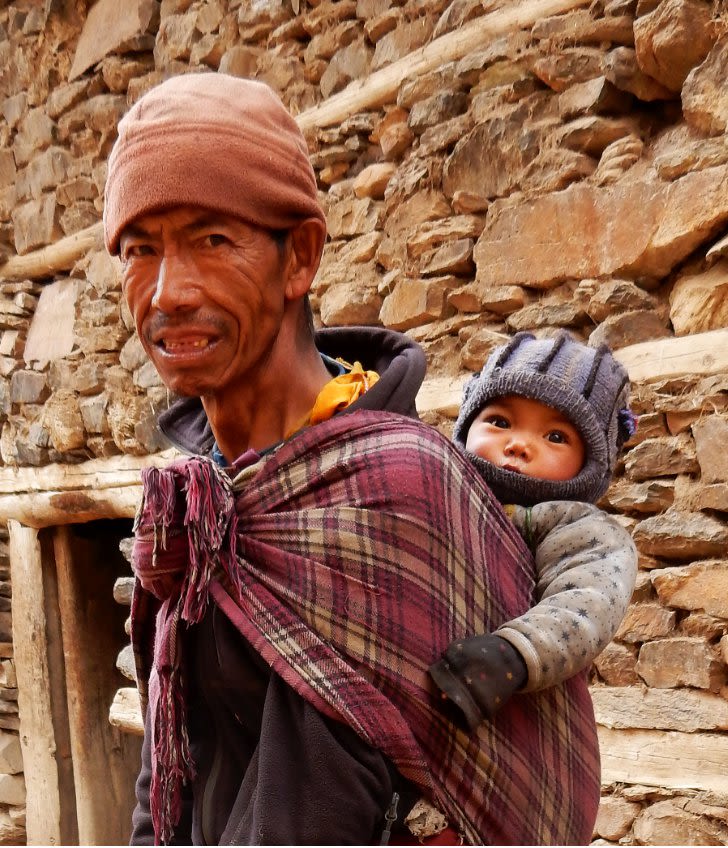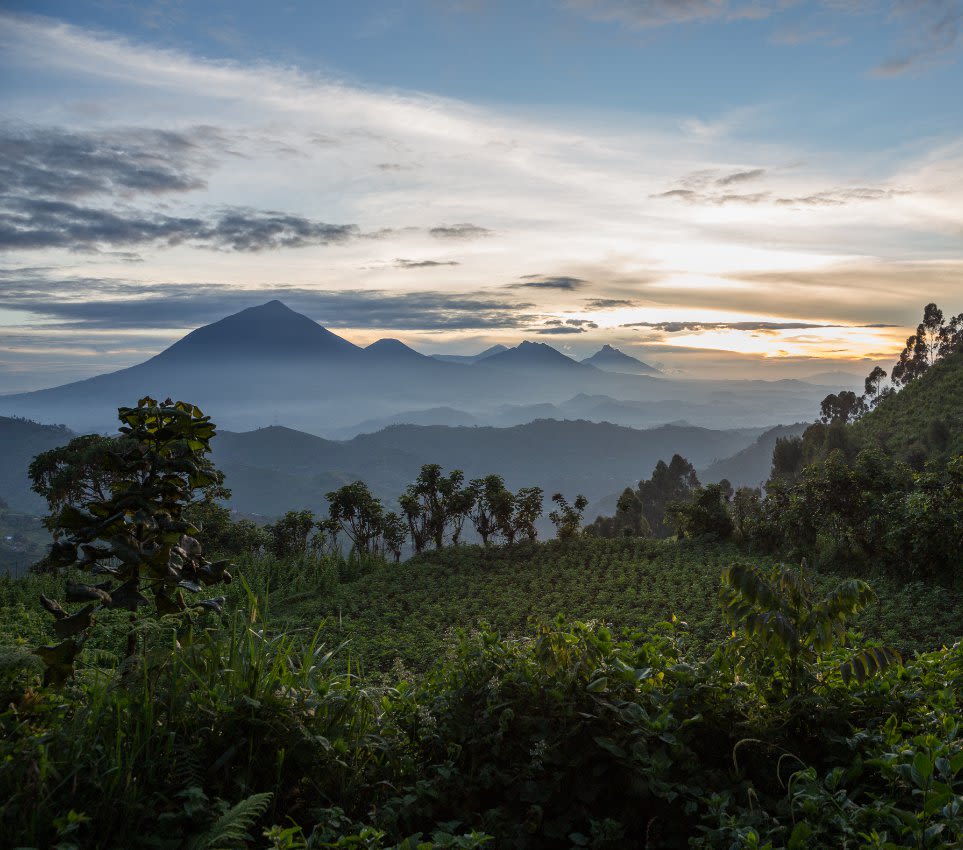scroll-down
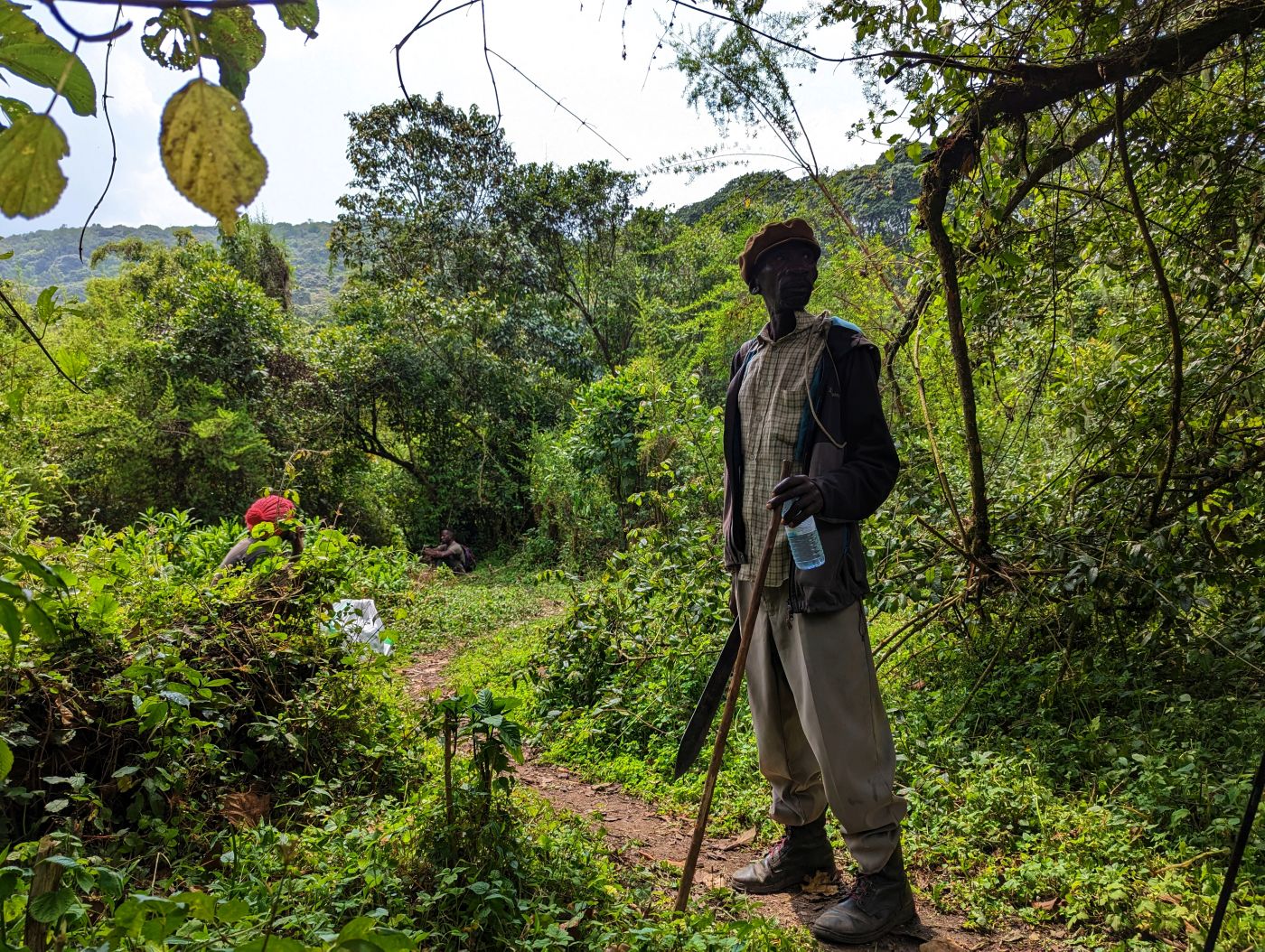
02
March
2026
The Batwa of Western Uganda– conservation refugees
Nomadic Skies’ quest to work meaningfully with the indigenous forest people of SW Uganda
The Eviction of the Batwa from their forest homes
In the early 90s, international and local pressure resulted in the forced eviction of the Twa people (Batwa) from the equatorial forests of SW Uganda. This was part of wider efforts by conservationists and the Government of Uganda to reinforce National Park boundaries. Local farmers who had established fields inside national parks were removed and wood harvesting from forest areas was clamped down on. The Batwa were enticed (with offers of material and financial support), cajoled, and ultimately chased from their ancestral forest homes. Land beside the forest was designated for their relocation and a process of education and reorientation was provided by charitable and often evangelical organisations.
A people dipossessed
The result of this policy has been catastrophic for the Batwa. As with many indigenous people throughout history, the disconnection from their places and ways of life has resulted in poverty, despondency, mental health problems, alcohol abuse and even violence. After their eviction the Batwa became the focus of charity with many Christian based organisations focusing on ‘material, mental and spiritual improvement’. This ‘spiritual improvement’ of course involves the eradication of the traditional religion of the Batwa whose god (Nyabinga) is intricately linked with the spirituality of the forest. Within 30 years the Batwa have been dispossessed of their homes and are increasingly being disposed of their culture.
‘Human-zoo tourism’?
When the Batwa left the forest, they also became the focus of tourism attention and travellers began to be charged for interacting with the Batwa communities and for taking uncomfortable and ethically questionable photos with the ‘pygmy tribes’. A highly uncomfortable ‘human zoo’ tourism has evolved that is at one level offering some income to impoverished Batwa communities with the sale of crafts and fees for ‘Batwa experiences’, but at another level feels demeaning and even insulting. Reports abound of anger against tourists who try to take photos and of problems ensuing from tourism visits. Racism and prejudice are still prevalent in local communities against the Batwa despite increasing intermarriage.
Tourism: Is it possible to work with respect and meaning with Batwa guides and communities?
Cognisant of this background, it initially felt like a challenge to find ways for Nomadic Skies to work meaningfully with Batwa communities. But during our scoping in February 2023 the possibilities and opportunity became very clear. During our journey we deliberately sought out local Batwa guides to lead us through the forests that were their ancestral homes. We were led to the locations and paths that were spiritually important to the Batwa – including the beautiful Munyaga Waterfalls deep in Bwindi Impenetrable Forest and the Garama cave (an ancient Batwa abode). We met and discussed the history of the Batwa and local Batwa guides shared their forest knowledge and wisdom. We pledged to always have Batwa guides accompany us through ‘their forests’ – a win-win for both traveller and Batwa. We also agreed that we would have younger people from the Batwa community also join us on our treks through the forest – so they could continue to learn about the forest lore and traditions. The potential of tourism to support the preservation of the Batwa’s indigenous forest wisdom is clear and is something that will now underpin our Forest treks.
Nomadic Skies will now work with Batwa communities in all our journeys in Echuya, Mgahinga and Bwindi forests. We will aim to keep adapting our approaches to support the preservation of Batwa forest wisdom and provide income to Batwa families. Our interaction has already brought our attention to skilled Batwa guides who have little regular work, but who could become extremely effective and knowledgeable travel guides. The Batwa are part of what the esteemed anthropologist Wade Davis calls the ‘threatened ethno-sphere’ – an invaluable part of the rich tapestry of human existence that is rapidly diminishing. At Nomadic Skies we believe that we can contribute to a small degree in supporting ‘ethno-diversity’ and in so doing create unique experiences that we can learn so much from.
Join us on our inaugural journey to the SW of Uganda and walk with the Batwa through the forests of their ancestors: 17 days – 25th June to 11th July 2024

02
March
2026
The Batwa of Western Uganda– conservation refugees
Nomadic Skies’ quest to work meaningfully with the indigenous forest people of SW Uganda
The Eviction of the Batwa from their forest homes
In the early 90s, international and local pressure resulted in the forced eviction of the Twa people (Batwa) from the equatorial forests of SW Uganda. This was part of wider efforts by conservationists and the Government of Uganda to reinforce National Park boundaries. Local farmers who had established fields inside national parks were removed and wood harvesting from forest areas was clamped down on. The Batwa were enticed (with offers of material and financial support), cajoled, and ultimately chased from their ancestral forest homes. Land beside the forest was designated for their relocation and a process of education and reorientation was provided by charitable and often evangelical organisations.
A people dipossessed
The result of this policy has been catastrophic for the Batwa. As with many indigenous people throughout history, the disconnection from their places and ways of life has resulted in poverty, despondency, mental health problems, alcohol abuse and even violence. After their eviction the Batwa became the focus of charity with many Christian based organisations focusing on ‘material, mental and spiritual improvement’. This ‘spiritual improvement’ of course involves the eradication of the traditional religion of the Batwa whose god (Nyabinga) is intricately linked with the spirituality of the forest. Within 30 years the Batwa have been dispossessed of their homes and are increasingly being disposed of their culture.
‘Human-zoo tourism’?
When the Batwa left the forest, they also became the focus of tourism attention and travellers began to be charged for interacting with the Batwa communities and for taking uncomfortable and ethically questionable photos with the ‘pygmy tribes’. A highly uncomfortable ‘human zoo’ tourism has evolved that is at one level offering some income to impoverished Batwa communities with the sale of crafts and fees for ‘Batwa experiences’, but at another level feels demeaning and even insulting. Reports abound of anger against tourists who try to take photos and of problems ensuing from tourism visits. Racism and prejudice are still prevalent in local communities against the Batwa despite increasing intermarriage.
Tourism: Is it possible to work with respect and meaning with Batwa guides and communities?
Cognisant of this background, it initially felt like a challenge to find ways for Nomadic Skies to work meaningfully with Batwa communities. But during our scoping in February 2023 the possibilities and opportunity became very clear. During our journey we deliberately sought out local Batwa guides to lead us through the forests that were their ancestral homes. We were led to the locations and paths that were spiritually important to the Batwa – including the beautiful Munyaga Waterfalls deep in Bwindi Impenetrable Forest and the Garama cave (an ancient Batwa abode). We met and discussed the history of the Batwa and local Batwa guides shared their forest knowledge and wisdom. We pledged to always have Batwa guides accompany us through ‘their forests’ – a win-win for both traveller and Batwa. We also agreed that we would have younger people from the Batwa community also join us on our treks through the forest – so they could continue to learn about the forest lore and traditions. The potential of tourism to support the preservation of the Batwa’s indigenous forest wisdom is clear and is something that will now underpin our Forest treks.
Nomadic Skies will now work with Batwa communities in all our journeys in Echuya, Mgahinga and Bwindi forests. We will aim to keep adapting our approaches to support the preservation of Batwa forest wisdom and provide income to Batwa families. Our interaction has already brought our attention to skilled Batwa guides who have little regular work, but who could become extremely effective and knowledgeable travel guides. The Batwa are part of what the esteemed anthropologist Wade Davis calls the ‘threatened ethno-sphere’ – an invaluable part of the rich tapestry of human existence that is rapidly diminishing. At Nomadic Skies we believe that we can contribute to a small degree in supporting ‘ethno-diversity’ and in so doing create unique experiences that we can learn so much from.
Join us on our inaugural journey to the SW of Uganda and walk with the Batwa through the forests of their ancestors: 17 days – 25th June to 11th July 2024



